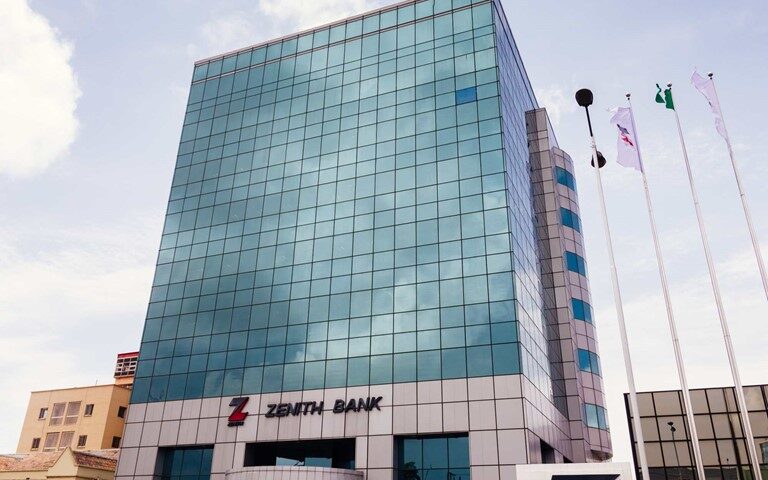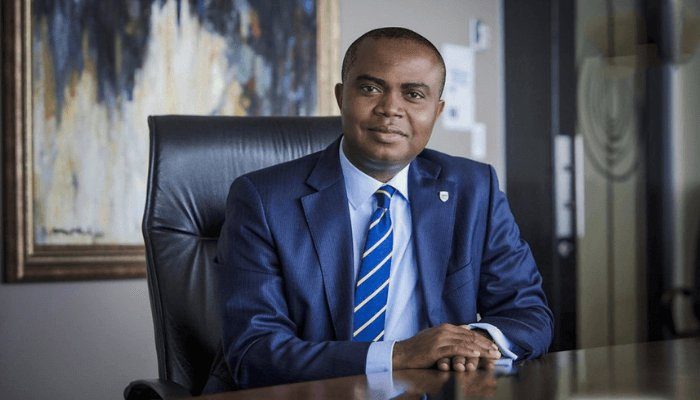Earlier, Brigham Tomco, a politics reporter for Deseret News, cited Utah House Speaker Mike Schultz confirming that Kirk had died. ArticlesRead More
Capital Market Operators Seek Review of Proposed 30% Capital Gains Tax to 25%
Capital Market Operators Seek Review of Proposed 30% Capital Gains Tax to 25%
•Mukuru: New law lacks equity, will put enormous pressure on NGX, increase cost of Nigerian equities
•Investors’ return on stock market rise to N27.82 trillion in nine months
James Emejo in Abuja and Kayode Tokede in Lagos
Operators in the Nigerian capital market have urged Chairman of Presidential Committee on Fiscal Policy and Tax Reforms (FPTR), Mr. Taiwo Oyedele, to reconsider the proposed introduction of a 30 per cent tax on capital gains from the disposal of shares.
In an open letter to Oyedele, which was dated October 2, 2025, the operators said the rate, expected to take effect from January 2026, will “put a lot of pressure on the NGX until the end of the year, as domestic and foreign institutional investors look to realise gains under the current tax regime”.
However, the average investors’ return on the stock market section of the Nigerian Exchange Limited (NGX) appreciated to N27.82 trillion, driven by the federal government’s foreign exchange reforms, among others, that boosted confidence.
Measuring the performance by market capitalisation, it was revealed that the stock market opened for trading in 2025 at N62.763 trillion, gained 44.3per cent or N27.82 trillion to close September 30, 2025 at N90.581 trillion.
In September 2025, the market capitalisation added 2.04 per cent or N1.81 trillion, from N88.769 trillion, it closed for trading in August 2025 from N90.581 trillion.
Nonetheless, the letter to the FPTR chairman, signed by Chief Executive, Emerging and Frontier Capital (EFC), Mr. Kato Mukuru, stated that the new CGT regime was “not in keeping with the seventh guiding principle of the FPTR”.
Mukuru said, “This principle, which calls for the equitable treatment of all stakeholders, ‘including investors and businesses, both local and foreign, and all tiers of government – federal and subnational’ is not being met with the proposed guidelines, in our opinion.
“We say this because: It provides retail investors with a N150 million (cUSD101k) annual exemption threshold, which is expected to cover 99.9 per cent of all domestic retail investors. It also provides PFAs and potentially other large sources of domestic liquidity with an exemption.
“However, there is no exemption threshold for domestic and foreign institutional investors. They are forced to reinvest their funds in other listed or unlisted equities to be exempt. How is this equitable?”
The EFC chief executive said the proposed CGT could be reduced to 25 per cent when proceeds from share sales were reinvested in fixed income securities or other non-equity assets, adding that while the lower rate is appreciated, “how is this fair for funds that can only invest in equities?”
Mukuru added, “The chairman recently recognised that it looks ‘unfair’ to use the purchase price at the time of acquisition as the reference cost, even if the shares were bought several years ago.
“If you recognise that this is unfair, particularly for investors who bought the shares over the past 10 years, then why not offer an exemption period and start all of this on the implementation date (1 January 2026)?”
The correspondence further stated that there was no consideration for foreign investors, who will now have to price in the CGT on top of their FX risk.
It stated, “Does the FPTR not recognise that this will increase the cost of equity for Nigerian equities. A higher cost of equity means that Nigerian businesses will have to make higher sustainable returns to attract foreign capital.
“Nigeria is one of many potential investment destinations for foreign allocators of capital and this makes the country far less competitive.
“Aside from not being equitable to all shareholders, the new 30 per cent tax rate on gains that is set to take effect on January 2026, will put a lot of pressures on the NGX until the end of the year, as domestic and foreign institutional investors look to realise gains under the current tax regime.”
Mukuru said, “While temporary, it should be noted that bringing back this capital will be challenging and this is clearly not in the long-term interest of the NGX and its companies, that drive growth, jobs, and long-term economic development for Nigeria.”
Meanwhile, the NGX All-Share Index (NGX ASI) closed nine months of 2025 at 142,710.48 basis points, about 38.65 per cent or 39,784.08 basis points from 102,926.40 basis points the stock market had closed for trading in 2024.
Analysts attributed the stock market 38.65 per cent investors average return to stability in the foreign exchange market, companies recovering from foreign exchange losses, market liquidity, capital inflow, dominance of domestic investors, increasing portfolio investment, banking sector recapitalisation by Central Bank of Nigeria (CBN), and insurance sector reforms, which had played a critical role in overall stock market performance in the period under review.
So far in 2025, the stock market had seen Monetary Policy Committee of the CBN reducing Monetary Policy Rate to 27 per cent, marking the first cut since the COVID-19 pandemic in 2020; inflation rate moving to 20.12 per cent, as of August 2025; companies announcing impressive corporate earnings and half year ended 2025 interim dividend pay-out to shareholders; listing by introduction of Legend Internet Plc; and listed banks announcing the outcome of fresh capital raising on the exchange.
Equally, the yield on Nigerian Treasury Bills (NTB) dropped to 15 per cent, as of September 17, 2025, from 18 per cent.
In the nine months under review, several stocks listed on the NGX recorded strong month-to-date appreciation, reflecting heightened foreign investor confidence driven by improved macroeconomic indicators and robust corporate earnings.
Capital market analysts stated that the corporate earnings report of H1 2025, among other factors, encouraged investors seeking high returns in a volatile macro environment.
Managing Director, Globalview Capital Limited, Mr. Aruna Kebira, in a chat with THISDAY, said the stock market in the nine months of 2025 witnessed the tanking of inflation figures and CBN cutting interest rate to 27 per cent, from 27.50 per cent.
Kebira stated, “Those parameters alone gave the capital market investors a moment of respite in the nine months of 2025.
“The yields in the money market are not looking as attractive as they were in 2024, making discerning investors in search of better yields to consider the capital market as their investment destination.”
He also stated, “In the last MPC, the MPR was reduced, including other metrics. This is sending positive signals that as the inflation figure and money market yields are downward looking, the MPC would have a reason to tinker the MPR further downward. Which is not always fixed income friendly.
“If the various issuers demonstrate a performance higher than the corresponding period of 2024 and declare an impressive interim dividend, the stock market will move to appreciate their prices.”
•Mukuru: New law lacks equity, will put enormous pressure on NGX, increase cost of Nigerian equities •Investors’ return on stock market rise to N27.82 trillion in nine months James Emejo


